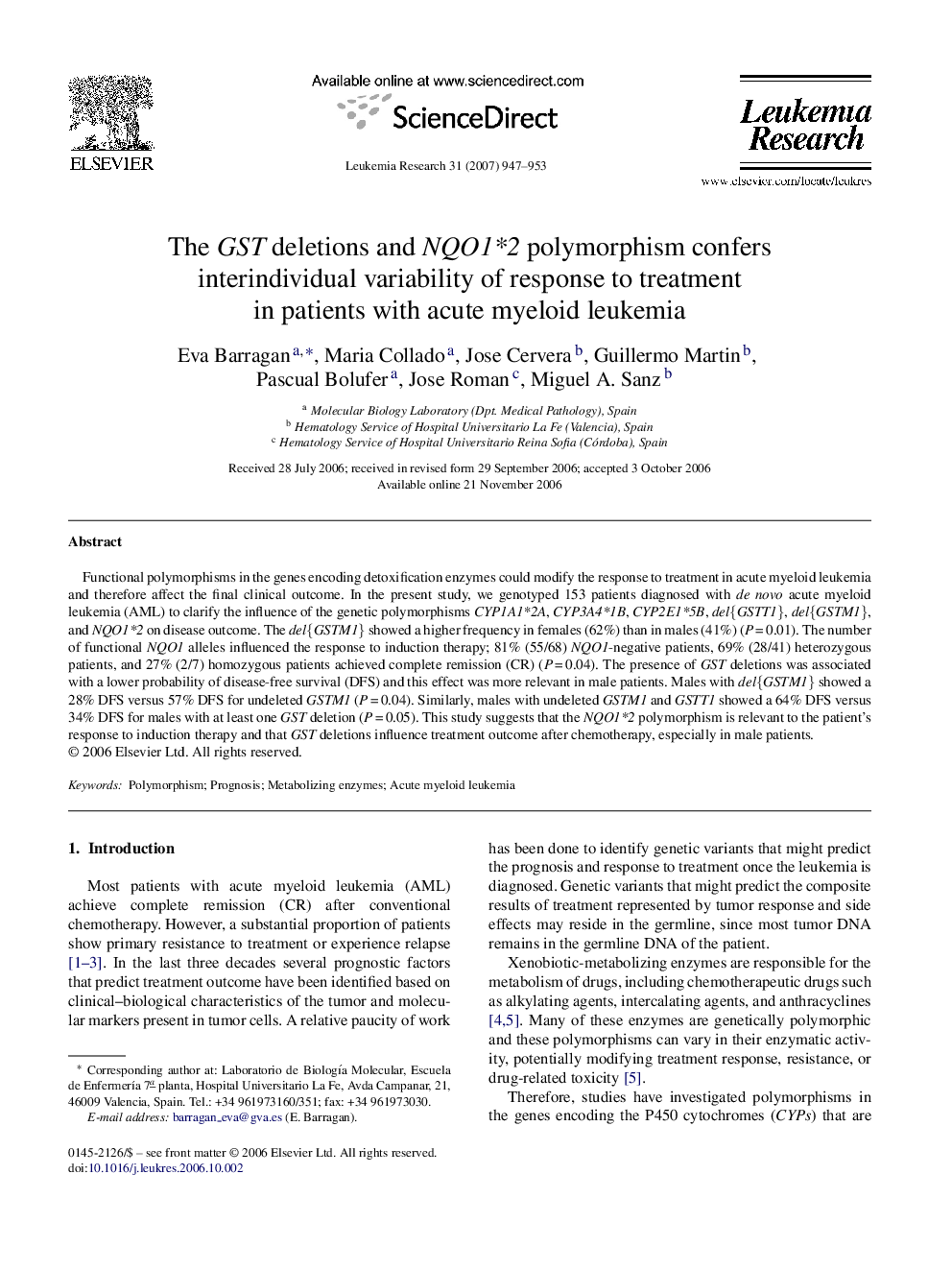| کد مقاله | کد نشریه | سال انتشار | مقاله انگلیسی | نسخه تمام متن |
|---|---|---|---|---|
| 2139585 | 1087911 | 2007 | 7 صفحه PDF | دانلود رایگان |

Functional polymorphisms in the genes encoding detoxification enzymes could modify the response to treatment in acute myeloid leukemia and therefore affect the final clinical outcome. In the present study, we genotyped 153 patients diagnosed with de novo acute myeloid leukemia (AML) to clarify the influence of the genetic polymorphisms CYP1A1*2A, CYP3A4*1B, CYP2E1*5B, del{GSTT1}, del{GSTM1}, and NQO1*2 on disease outcome. The del{GSTM1} showed a higher frequency in females (62%) than in males (41%) (P = 0.01). The number of functional NQO1 alleles influenced the response to induction therapy; 81% (55/68) NQO1-negative patients, 69% (28/41) heterozygous patients, and 27% (2/7) homozygous patients achieved complete remission (CR) (P = 0.04). The presence of GST deletions was associated with a lower probability of disease-free survival (DFS) and this effect was more relevant in male patients. Males with del{GSTM1} showed a 28% DFS versus 57% DFS for undeleted GSTM1 (P = 0.04). Similarly, males with undeleted GSTM1 and GSTT1 showed a 64% DFS versus 34% DFS for males with at least one GST deletion (P = 0.05). This study suggests that the NQO1*2 polymorphism is relevant to the patient's response to induction therapy and that GST deletions influence treatment outcome after chemotherapy, especially in male patients.
Journal: Leukemia Research - Volume 31, Issue 7, July 2007, Pages 947–953